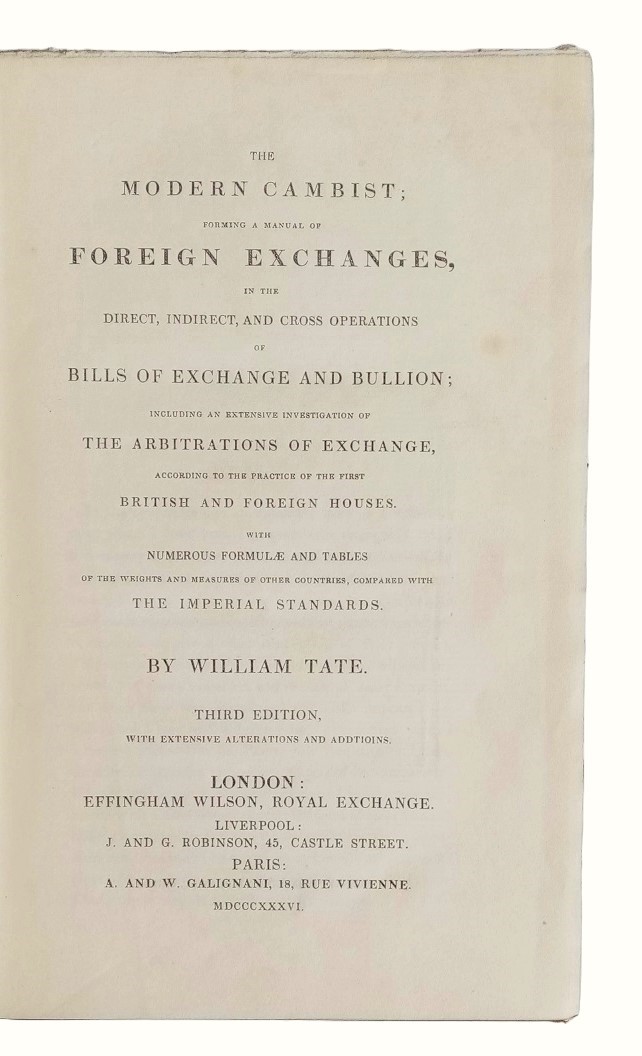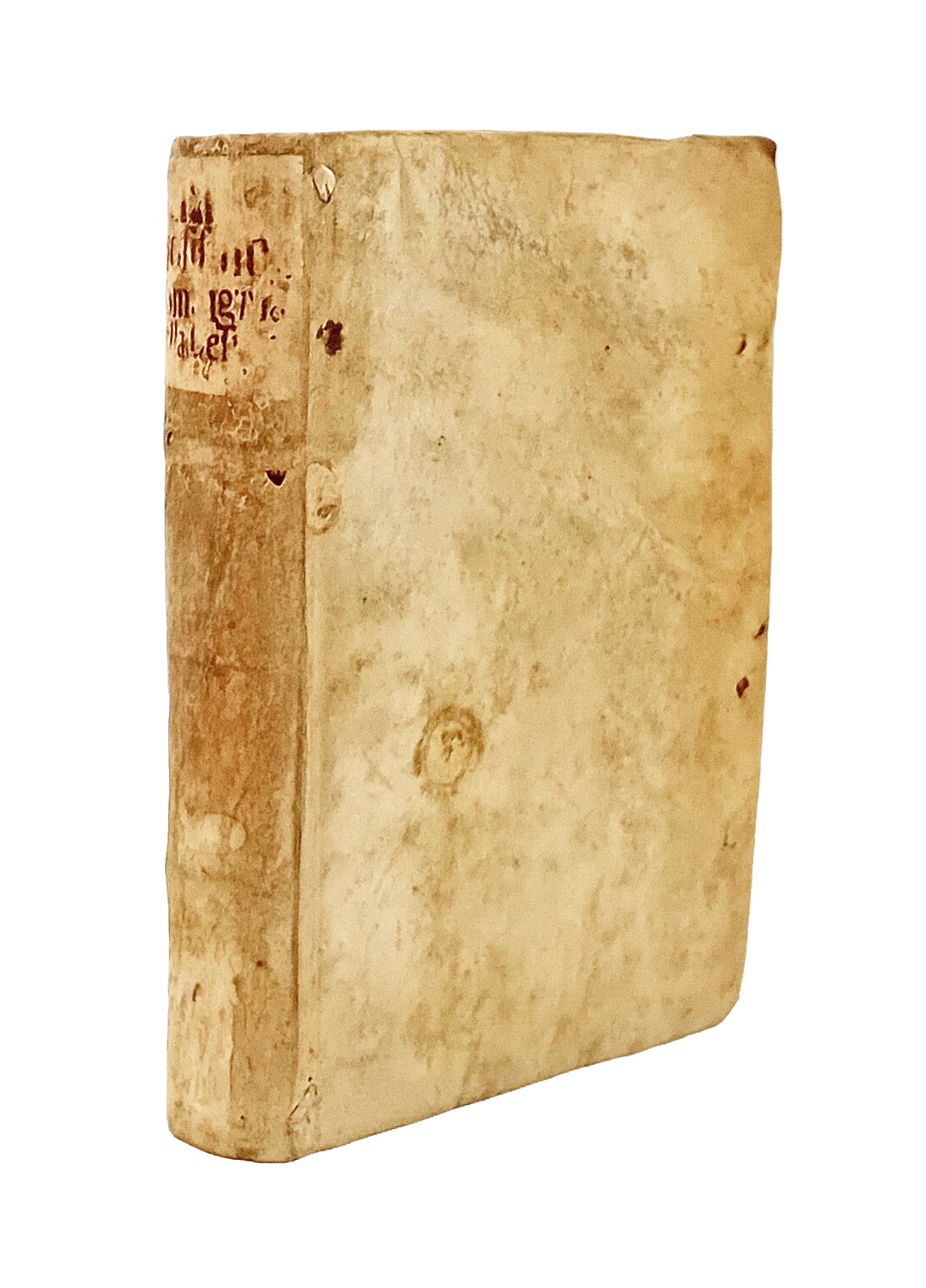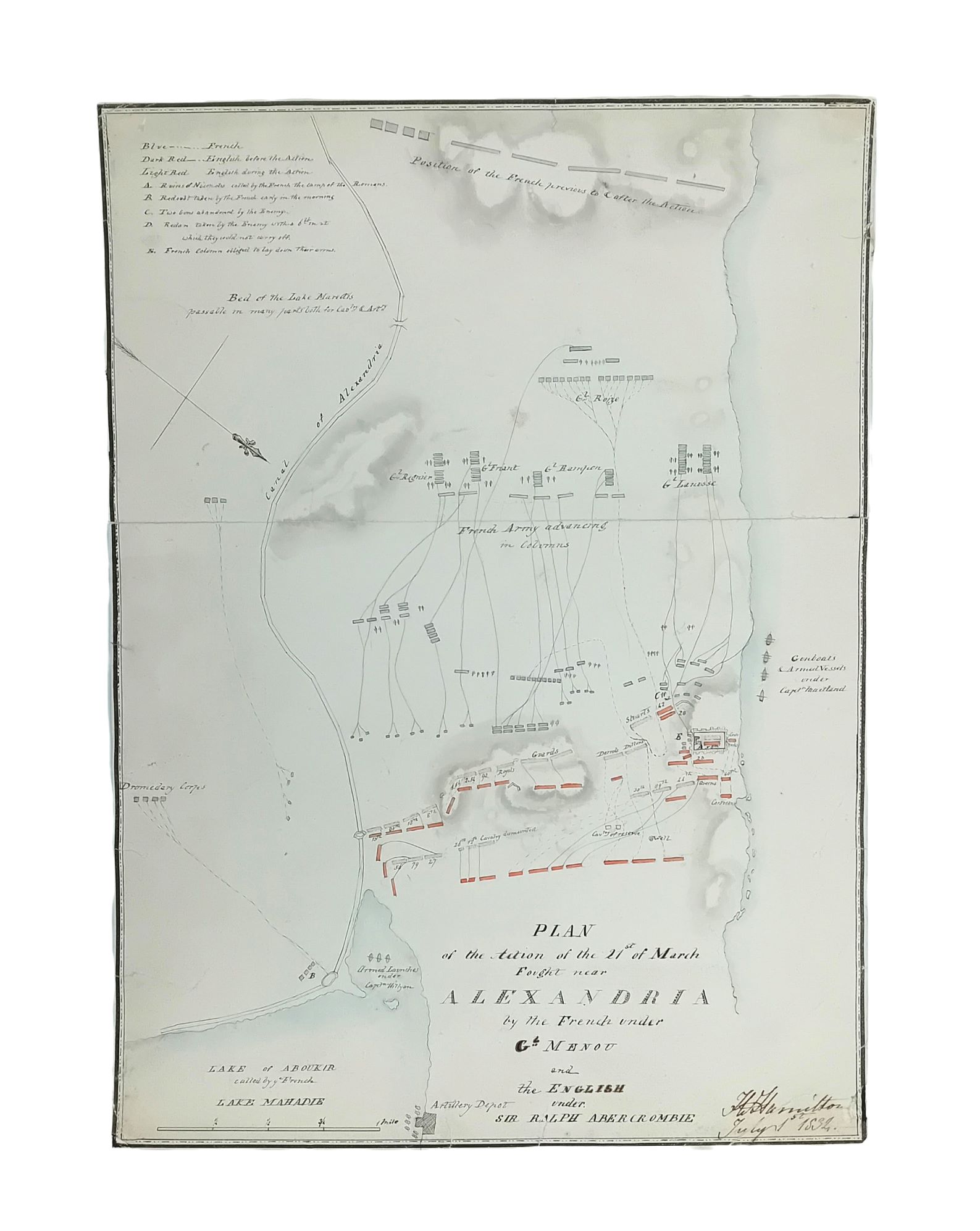
TATE, William.
The modern cambist; forming a manual of foreign exchanges, in the direct, indirect, and cross operations of bills of exchange and bullion; including an extensive investigation of the arbitrations of exchange, according to the practice of the first British and foreign houses. With numerous formulae and tables of the weights and measures of other countries, compared with the Imperial standards. Third edition, with extensive alterations and addtioins [sic].
London, Effingham Wilson, 1836.
8vo, pp. x, ix-xiv, 224; occasional pencil marginalia, a very good copy untrimmed in the original publisher’s pebbled cloth, printed paper lettering-piece to the spine; sunned, extremities a little worn, upper joint just cracked at spine ends; extensive pencil calculations to the front endpapers.

Added to your basket:
The modern cambist; forming a manual of foreign exchanges, in the direct, indirect, and cross operations of bills of exchange and bullion; including an extensive investigation of the arbitrations of exchange, according to the practice of the first British and foreign houses. With numerous formulae and tables of the weights and measures of other countries, compared with the Imperial standards. Third edition, with extensive alterations and addtioins [sic].
Third edition, corrected and expanded to reflect changes in the monetary systems of Portugal and Geneva, a new coinage introduced by the East India Company and the opening of trade with China. There is also a new appendix which discusses the mintage regulations for the coins of the United States, reflecting the increasing importance of currency exchanges between the United States and the United Kingdom. The section on trade with China is of particular interest as the Canton system described by Tate only lasted another six years before the Treaty of Nanjing, signed on 29 August 1842, ended the First Opium War and laid the foundation for a new system of Chinese foreign relations and overseas trade that lasted for over one hundred years.
Kress C.4260. Not in Goldsmiths’.

